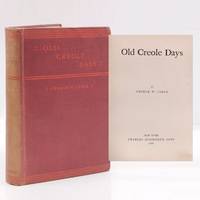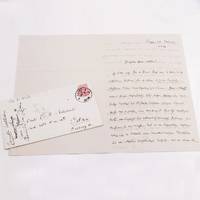signed first edition 24pp. 1 vols. 8vo
1775 · [New York]
by [Seabury, Samuel]
[New York]: [James Rivington], 1775. First edition. 24pp. 1 vols. 8vo. Later half red morocco and marbled paper, worn at joints, spine darkened, repair at front hinge. Foxing. Perforated and inked stamps. Provenance: T. B. Chandler (signature on title). First edition. 24pp. 1 vols. 8vo. Samuel Seabury was first bishop of the Episcopal Church in America. At the outset of the American Revolution "Seabury and his colleagues began their major literary struggle to keep the colonies loyal to the Crown. His most important pamphlets were signed A.W. Farmer" (DAB). Alexander Hamilton, at age seventeen, replied to Seabury's Free Thoughts... with A Full Vindication (truncated)




